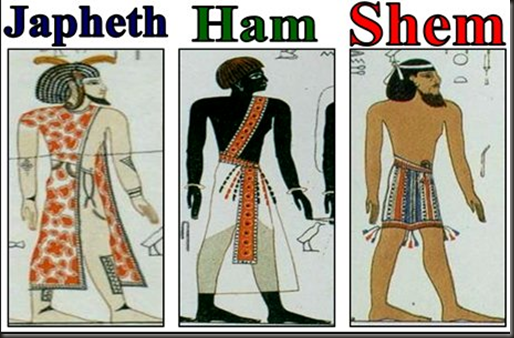Blogging Genesis, 1st of 2 reblogs for Genesis chapter 10.
In 2008, a research team from Massachusetts General Hospital performed a comprehensive investigation into specifically why so many climbers die on Mt. Everest. They found that most people who lose their lives on the highest mountain in the world do not actually die climbing up to the peak. They die coming back down.
The Biblical patriarch Noah built the ark. In one of the greatest acts of faith in history, Noah constructed a great wooden ship and saved humanity and the genetic ancestors of all land animals. All this is recorded in Genesis chapters 6-8.
In Genesis 9:21, Noah got drunk.
Sloppy drunk.
Sloppy-took-all-his-clothes-off-and-passed-out-naked drunk.
The
hero of humanity shamed himself before his family. Noah’s youngest son Ham made
fun of him, and in anger (and no doubt embarrassment) Noah took out his
frustration on Ham’s son. Noah cursed Canaan,
providing for Canaan’s descendants to eventually form the pagan nations that
rejected God and fought the Israelites (Genesis 10: 15-18). Noah’s shame led to the generational animosity
between Israelites and Canaanites that plagued the Middle East for centuries.
All because Noah got sloppy drunk.
How could a noble, holy man like Noah let himself fall into such a situation?
He was coming down from a peak.
The high point of Noah’s life was the ark. Comparing Genesis 7: 11 and 8: 14, we realize that Noah and his family were inside the ark for over a year. That year is added to the time it took Noah to build the thing.
Think about the intense focus, planning, and constant effort all of this took. Once the Flood came and the ark was afloat, Noah literally became the head of humanity, the patriarch of the planet. Inside the ark he had to attend to the animals, see to the distribution of provisions, settle disputes, make decisions. There was constant activity.
Until the waters receded.
Then, Noah found himself again on dry land, but it was not land he recognized. The face of the world had changed. Sure, he named his landing site Mt. Ararat, but he couldn’t know relative to the pre-Flood world how far he’d actually floated. On dry land, the animals disbursed and started doing what animals do---without Noah’s direction. On dry land, his sons would have begun talking about building their own houses and going off with their wives to lead their own families. On dry land, without the constant work of the ark Noah would have had time to stop and reflect on the fact that every old friend, relative, and acquaintance he had known was dead.
During the crisis of the flood Noah had been strong. Doing the work of the ark Noah had been steadfast. But when the adrenaline ebbed the strain of the regular routine of just living was too much.
Noah couldn’t handle coming down from the peak.
For some of us, crises are easy. We’re ready to put in extraordinary effort, to rise to tough challenges, to deliver excellence under pressure. We like to push ourselves to conquer new summits of performance. Satan won’t trip us in the middle of a crisis because we are at our spiritual and personal best in tough times.
We, however, are at our weakest after the peak. When extraordinary demands give way to ordinary days we have to be extra careful of our spiritual lives.
Satan will come at us then. He’ll assault our peace and tempt us to escape into whatever is our favorite or habitual distraction. For Noah it was the wine bottle. For others it may be food or sex or conflict or whatever.
If we let Satan trip us after the peak, we may find ourselves doing things that put us to shame before our families and cause problems that linger for years.
Guard yourself after the peaks. Remind your support team to continue & even to intensify prayer for you after the big event is over.
Don’t let yourself be destroyed on the descent from the mountain.
2 Corinthians 2: 11 …for we are not ignorant of [Satan’s] devices.
---Anderson T. Graves II is a writer, community organizer and consultant for education, ministry, and rural leadership development.
Rev. Anderson T. Graves II is pastor of
Miles Chapel CME Church in Fairfield, Alabama; executive director of the Substance Abuse Youth Networking Organization
(SAYNO); and director of rural leadership development for the National Institute for Human Development (
NIHD).
Email atgravestwo2@aol.com
You can help support Rev. Graves’ work by visiting his
personal blog and clicking the
DONATE button on the right-hand sidebar.
Support by check or money order may be mailed to
Miles Chapel CME Church
P O Box 132
Fairfield, Al 35064











